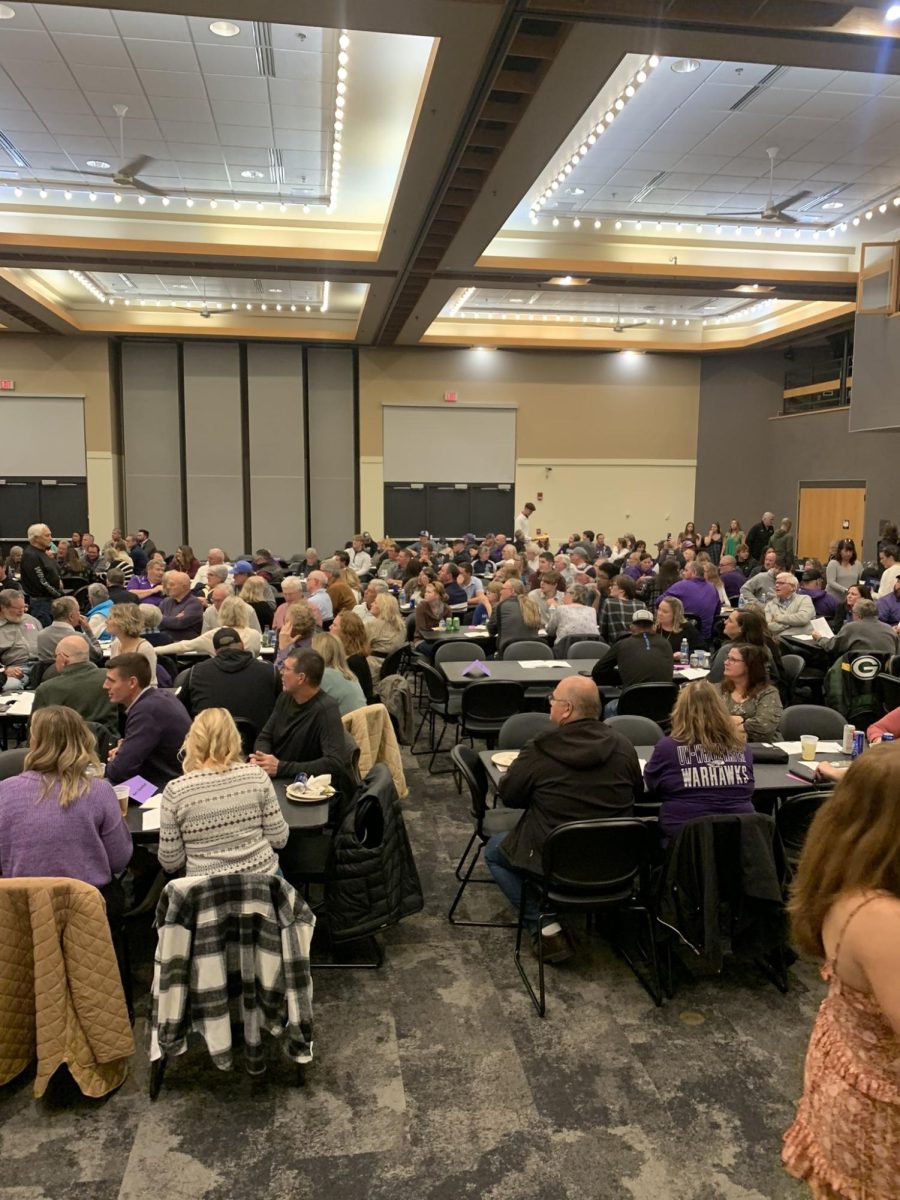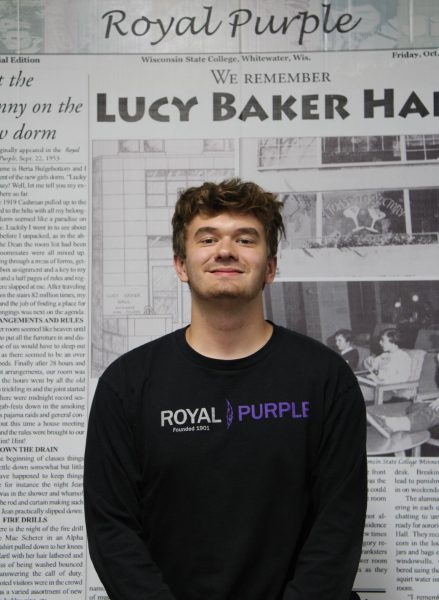World Kindness Day, celebrated on Nov. 13, is an international observation that highlights kind and positive deeds that benefit the community. While many people across the world recognize the day, it is crucial that people are kind to others year-round. UW-Whitewater athletics follows this outlook.
Giving back to the community is a cornerstone throughout the university’s 20 intercollegiate athletic programs. These opportunities are a two-way street of positive impacts for both the programs and the community.
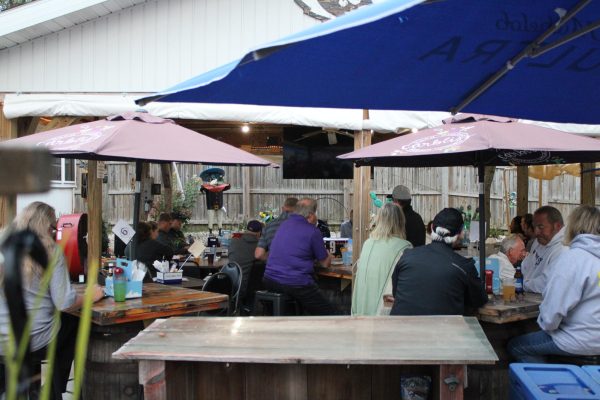
“If you want to be a community, it does take a village, and when we say it takes a village, it takes everybody to give back a little bit,” Athletic Director Ryan Callahan said. “The community is very supportive of us, and we have to be supportive of the community.”
The athletes’ participation in these activities would not be possible at this caliber without Callahan’s ambition to incorporate more student leadership than ever before, which is possible through the UW-Whitewater Student-Athlete Advisory Committee. According to the NCAA, some committee roles include reviewing legislation, implementing student-athlete-based initiatives, and overall “enhancing Division III student-athlete involvement in and understanding of Division III in general.”
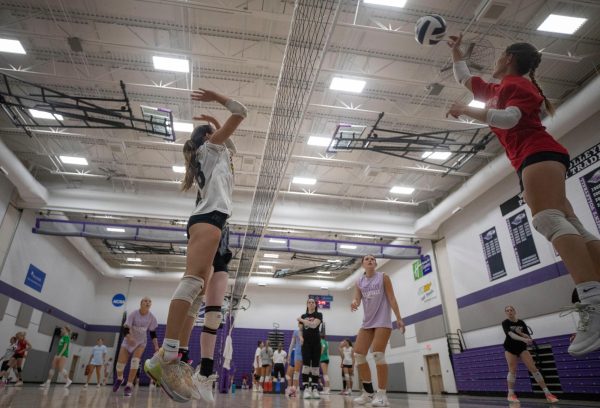
(UW-Whitewater photo/Craig Schreiner)
“I think it’s great that Callahan has switched this over to something that the SAAC is taking the lead on,” men’s and women’s tennis head coach Frank Barnes said. “I think it means more to the players… if they’re the ones in charge of organizing the events instead of just going because they’re supposed to go.”
The larger emphasis on student leadership strengthened long-standing partnerships with many different demographics across the Whitewater community. Athletes play bingo and make dog treats at Fairhaven Senior Services while also reading to young students in their athletic jerseys at the Washington and Lincoln Elementary Schools.
Impacting these different demographics benefits both sides of the deal. Not only does it make the community happier, it also improves the resumes of the athletes with professional experience and traits that will appeal to employers.
“This gives them a chance to build their leadership skills, their communication skills, just interacting with the public,” Barnes said. “When they are in the real world, trying to land a job and interviewing, that really bodes well for their skills.”
SAAC branches across the country also help coordinate the division’s partnership with Special Olympics. Specifically with Special Olympics Wisconsin, the city of Whitewater holds a Polar Plunge to help fundraise for the movement, which operates as a key opportunity for Warhawk student-athletes to give back.
“It’s pretty special in a different way,” women’s basketball head coach Keri Carollo said. “I have a nephew who participates in Special Olympics each year, so it’s really fun to be able to see the impact that those opportunities have on our culture.”
The Special Olympics being sports-oriented also helps student-athletes be more engaging with the event and the community participating in it. A similar idea is seen through youth sports camps that a majority of athletic programs host.
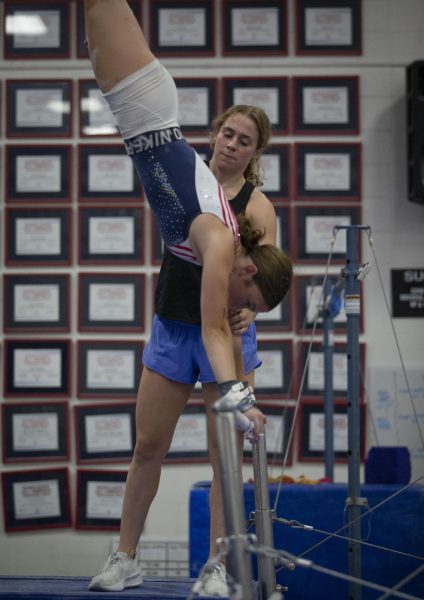
(UW-Whitewater photo/Craig Schreiner)
“That’s not only giving back, but it’s also spreading the love of the game that we all play,” Barnes said.
Additionally, different sports will have special events that help give back to the community. Basketball teams hosted “Hoops4Hunger” last season to raise awareness for hunger relief; football has hosted coat drives; gymnastics has a “Compete for a Cause” meet where gymnasts honor a cause with a colored ribbon in their hair, on top of many others.
The size of Whitewater and its surrounding communities is what makes this community connection extremely important. A majority of Wisconsin residents default their collegiate athletics’ support to the UW-Madison Badgers, which makes outreach crucial for the Warhawks.
“We’re actually a pretty big campus compared to others across the country, but it’s living in a smaller town,” Callahan said. “We really have to work well together and have that relationship with the community and with the campus and show each other support.”
While many universities across the country put an emphasis on volunteering and community, the deep connection that Warhawk athletics have with the Whitewater community is hard to find. It is not required community service hours that some larger universities place on student-athletes; it is the voice of student-athletes that successfully engages everyone.
“We want our community to feel like they have some sort of relationship or connection with what we’re trying to do,” Carollo said. “And I think when you can do that in a small town like Whitewater, I think it makes the experience for the student-athlete even more special.”

